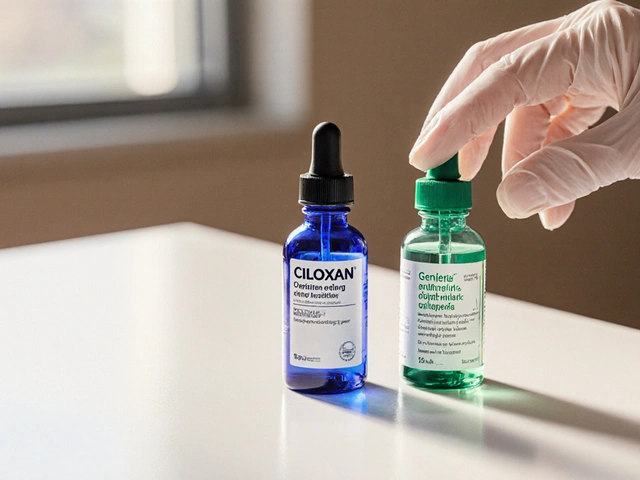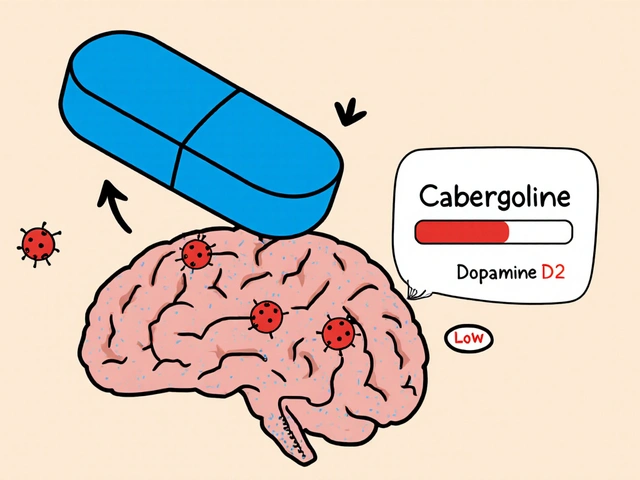Autoimmune disease: clear guides, treatment options, and everyday tips
Autoimmune diseases happen when your immune system attacks healthy parts of your body. They can look very different: joint pain and swelling, rash and fatigue, numbness, or digestive trouble. That makes them tricky to spot, so knowing common signs helps you get faster care.
Most doctors start with simple blood tests. A full blood count, C-reactive protein (CRP) or erythrocyte sedimentation rate (ESR) show inflammation. Autoantibody tests like ANA, anti-dsDNA, RF or anti-CCP point to conditions such as lupus, rheumatoid arthritis, or other specific diseases. Imaging and specialist referrals (rheumatology, neurology, gastroenterology) often follow.
Treatment aims to reduce immune attack and control symptoms. Steroids work fast for flares but aren’t a long-term plan alone. Disease-modifying drugs—methotrexate, azathioprine—or modern biologics like TNF inhibitors or B-cell blockers reduce damage over time. Your doctor balances benefit versus infection risk and monitors liver, kidneys, and blood counts regularly.
Medicine helps, but daily habits matter. Eat regular whole foods, keep protein and vegetables in each meal, and limit highly processed foods. Sleep 7–8 hours and prioritize stress management—breathing, short walks, or talking to someone help. Exercise keeps joints moving and fights fatigue; start gently and build up. Small, consistent steps beat dramatic changes.
Flares are normal. Plan how to act when symptoms worsen: track triggers, have a flare kit (prescription refills, pain relievers, heat or cold packs), and know when to call your clinician. Early adjustments to meds often prevent hospital visits. Keep a simple health log—date, symptoms, possible triggers, new meds—to spot patterns.
Supplements can help some people but talk to your doctor before starting anything. Vitamin D and calcium are common for bone health, especially if steroids are used. Zinc supports immunity but in excess it can cause problems. Herbal supplements aren't regulated like drugs; quality varies and interactions are common.
Medication safety matters. Many autoimmune drugs interact with vaccines, over-the-counter meds, and other prescriptions. Live vaccines may be unsafe on strong immunosuppression. Carry an up-to-date medication list and tell every provider you see that you take immune‑suppressing drugs.
Finding the right team changes outcomes. A good rheumatologist, nurse specialist, pharmacist, and physiotherapist help you manage meds, side effects, and function. If diagnosis is unclear, ask for referrals—sometimes a second opinion or targeted testing makes the difference.
Practical next steps
If you suspect an autoimmune problem, book a primary care visit and bring a short symptom timeline. Ask about basic blood tests and whether a referral to rheumatology is needed. Keep copies of test results and medication lists so you can track changes over time.
Where PharmaServe helps
On PharmaServe we explain medicines, side effects, and safe online options for prescriptions. Browse our guides on specific drugs, supplements, and how to buy meds safely. If you need clear, practical info about a medication or symptom, use our search or contact page for a quick pointer.
Stay curious, ask questions, and keep records — small efforts make big differences in living with autoimmune disease everyday safely.

Looking for alternatives to Prelone? We've got you covered with a dive into 2025's top options. Each alternative is explained with its benefits and downsides, helping you make an informed choice. Discover targeted treatments like Adalimumab and learn what makes them stand out or fall short. Whether cost, effectiveness, or side effects are your main concern, this guide breaks it all down.






